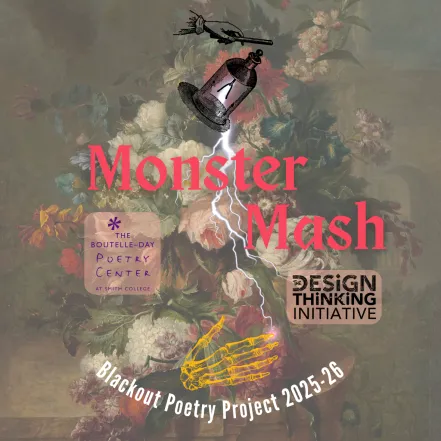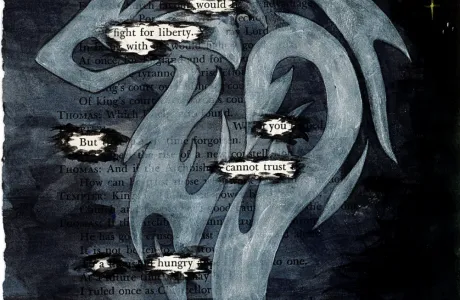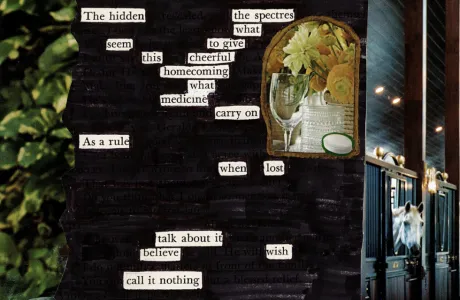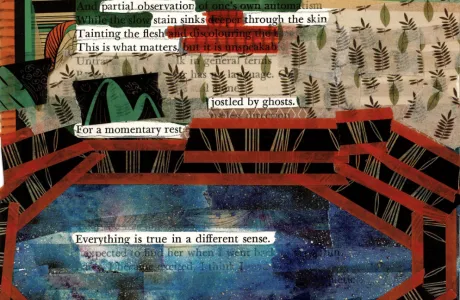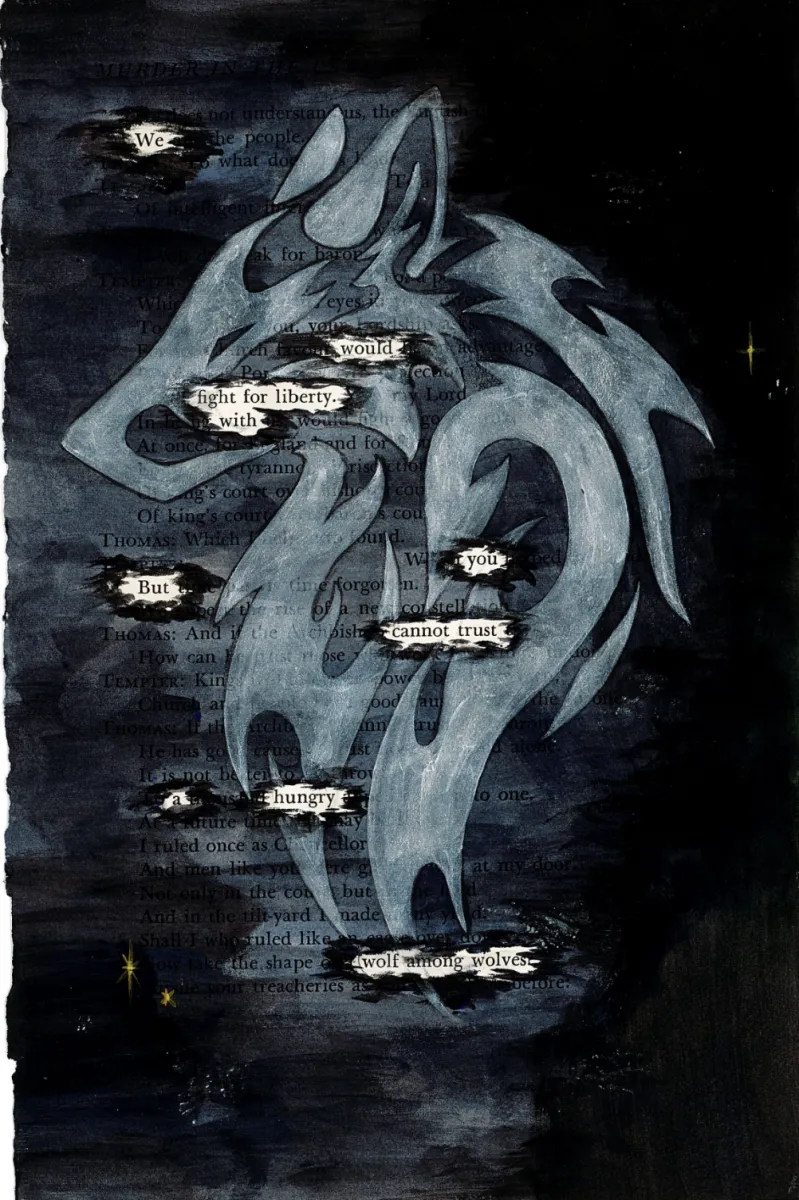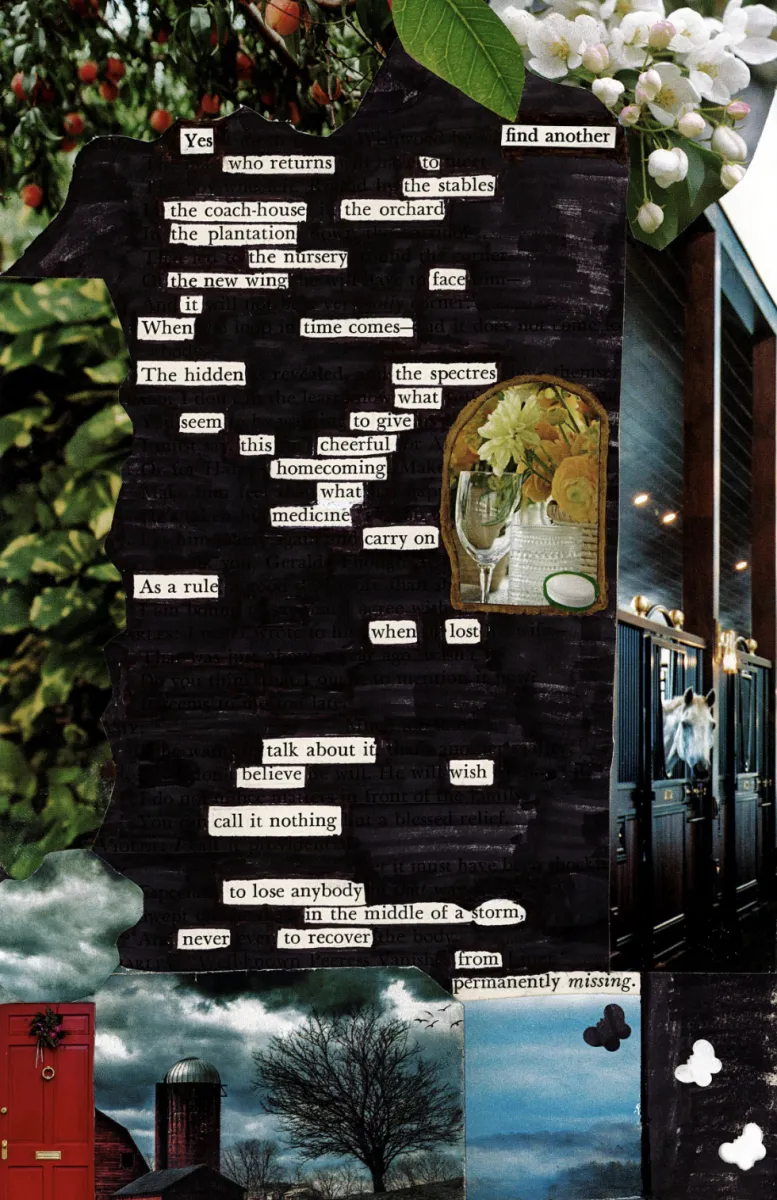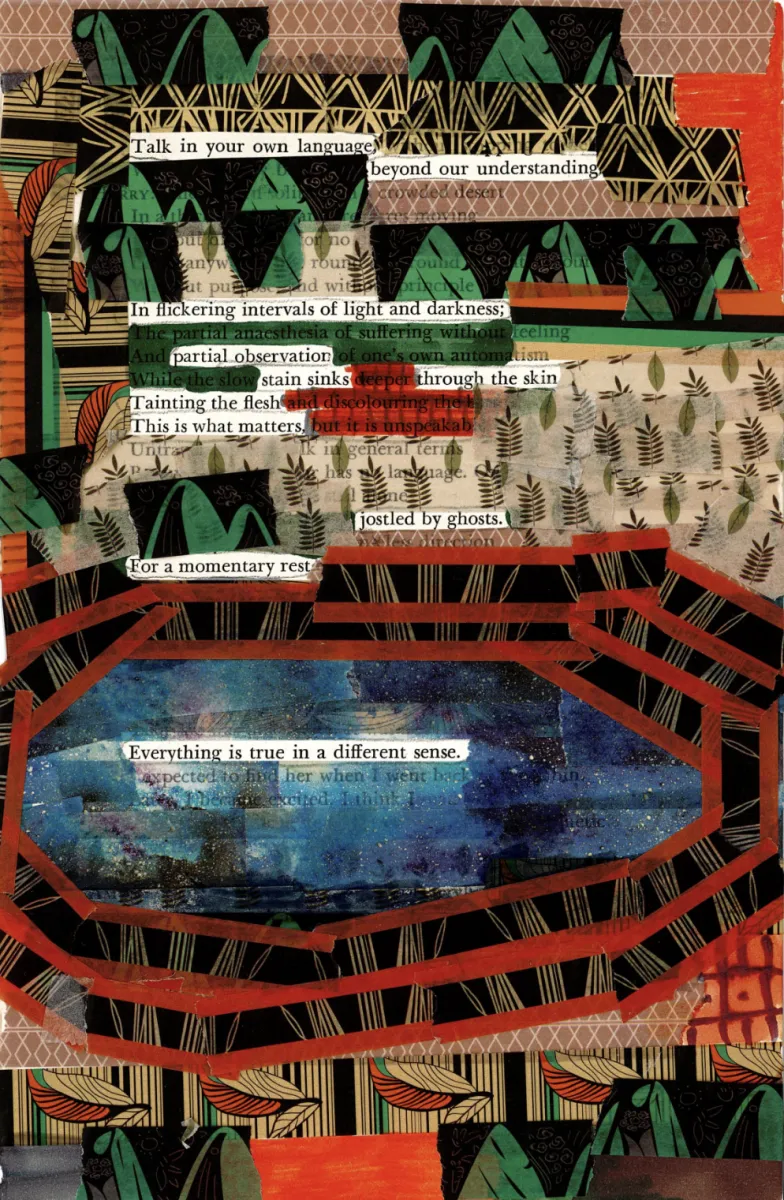Blackout Poetry Project
This community project offers a chance to interact with and reinterpret Mary Shelley’s Frankenstein. Participants will engage with this iconic work using new media and visual expression to say something entirely new. After each stunning, idiosyncratic, vibrant, haunting, or hilarious page is made, we will gather them into a new collection of poetry and art that could only have been made by our community.
Collectively, our community will respond to Shelley’s most iconic work.
The Process
The Boutelle-Day Poetry Center and the Design Thinking Initiative will have stations with pages from Frankenstein and a variety of materials available for creating your own responses. We plan to display them outside of the Boutelle-Day Poetry Center in Wright Hall (and occasionally feature them on Instagram), and when everything is done, put the pages back together to create a whole new document.
This project is open to all, including the Smith community, alums, and visitors to the Boutelle-Day Poetry Center.
Guidelines
- Choose one side of the page to hold your primary design.
- By participating in this project, participants agree to allow their work to be posted on social media, and assembled into an object that will be housed in the Mortimer Rare Books collection at the library.
- If you wish to be credited, please write your name legibly on the back. (If you want us to tag you on instagram, please include your IG handle!)
- What you do to alter the text is up to you! Here are some strategies to get you thinking: Cover words or blank space with whiteout pen or tape, marker, colored pencil, cut/torn paper, fabric, washi tape, images from books or magazines, string, embroidery, photos or film negatives, buttons, beads, dried & sealed plant material.
- Please take no more than 2 pages; we want to have enough for everyone!
- When finished, put completed pages on the paper tray or windowsill in the Boutelle-Day Poetry Center so we can collect them.
Explore Previous Submissions
Project Examples
Check out some examples of submissions from the Erased Land blackout poetry project.
